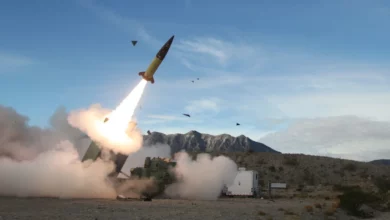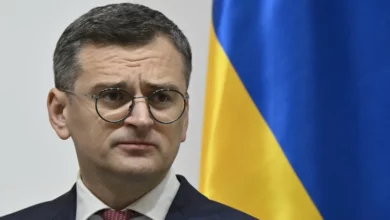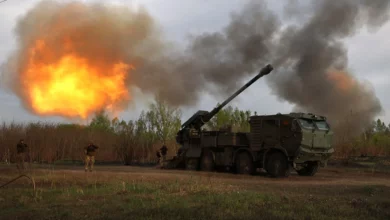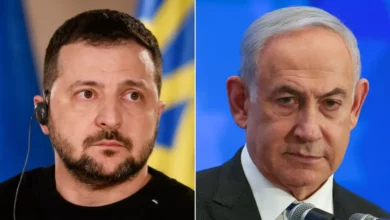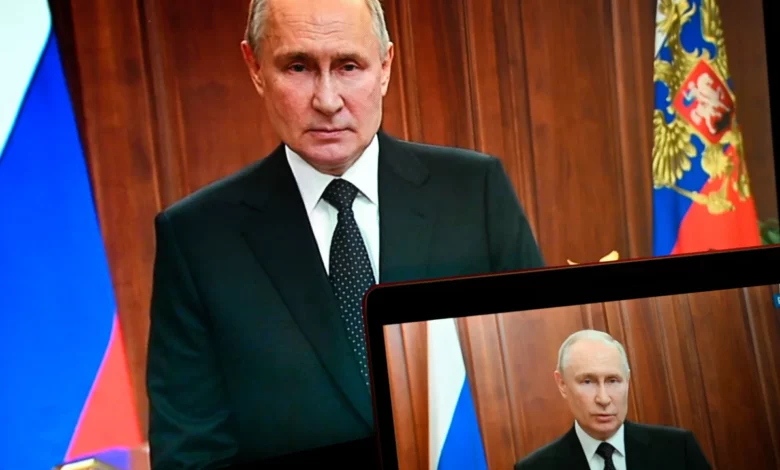
In the end, the uprising was short-lived. But for a brief and chaotic 36 hours, Russian President Vladimir Putin’s grip on power appeared to be under serious threat, as thousands of Wagner fighters led by warlord Yevgeny Prigozhin closed in on the country’s capital.
With the private mercenary group claiming to have seized key military sites in two Russian cities, the Kremlin was forced to deploy heavily armed troops to the streets of Moscow and warn residents to stay indoors.
But the face-off never came.
On Saturday, the Kremlin said a deal had been reached to end the insurrection, with Prigozhin heading to neighboring Belarus and Wagner fighters turning back from their march.
“Now is the moment when blood can be shed,” Prigozhin warned on Saturday. “Therefore, realizing all the responsibility for the fact that Russian blood will be shed from one of the sides, we turn our columns around and leave in the opposite direction to the field camps according to the plan.”
Wagner fighters will face no legal action, and the Kremlin has “always respected (Wagner’s) heroic deeds,” said Kremlin spokesperson Dmitry Peskov.
“You will ask me what will happen to Prigozhin personally? The criminal case will be dropped against him. He himself will go to Belarus,” Peskov said, adding that the situation had been resolved “without further losses.”
The abrupt about-face follows a rare, remarkable challenge to the Kremlin that threatened to plunge the country into crisis and destabilize its already stumbling war efforts in Ukraine.
The threat of civil war leaves the country – and the Putin regime – in a very different place Sunday than it had been just two days prior. And with Russia possessing the world’s largest nuclear arsenal, that instability has other nations on edge, prompting emergency meetings and high-level talks.
Threat to Putin
Putin has built a reputation as an autocrat with an iron grip on power since he became president in 2000 – with his reign second in length only to Joseph Stalin, the Communist leader whose image Putin has tried to rehabilitate.
The mysterious deaths of Putin critics over the years, and more recent critics of the Ukraine war, has only bolstered the Kremlin’s veneer of total control and the consequences for those who step out of line.
That has now been shaken badly by the Wagner insurrection – with experts warning Putin may be more exposed than he has been in the last 23 years.
“Putin is clearly weakened. There is blood in the water,” said Evelyn Farkas, executive director of the US-based think tank McCain Institute. She added that this near-crisis could be seen as an opportunity for Putin critics or rivals within the Kremlin.
Some international observers have expressed surprise at what they view as a lackluster Russian response to the insurrection, with the lack of a rapid, cohesive strategy highlighting the military’s weakened capabilities.
Putin will also have to contend with shaky public sentiment within Russia. Civilian support for the war in Ukraine remains high, but cracks had begun to show by early this year, with some Russians tuning out the propaganda on air and others finding ways to circumvent Internet restrictions.
In the months since, the war has arrived on Russian soil as Ukraine launched its counteroffensive. Russia’s Belgorod region saw a cross-border attack by anti-Putin Russian nationals in May, while the Kremlin itself came under alleged drone attacks.
The emerging split between Moscow and some of its civilians was on clear display Saturday, as Prigozhin and his forces prepared to depart the Russian city of Rostov-on-Don, where they had briefly occupied a key military facility. A video verified and geolocated by CNN show Prigozhin’s vehicle stopping as a resident approached to shake the Wagner boss’ hand; around them, residents cheer.
The location adds to the moment’s significance: Rostov-on-Don is an important regional capital with logistical and strategic value, housing the headquarters of Russia’s Southern Military District.
“All of this is spilling out into the Russian heartland,” said retired US Army Brig. Gen. Peter Zwack on Saturday.
Beth Sanner, former deputy director of National Intelligence for Mission Integration, said the incident could see Putin “double down on repression in Russia” in a bid to wrest back control – as well as step up its fighting in Ukraine, in the face of international scrutiny.
“He has been humiliated,” Sanner said. “He’s going to try to reassert (his strength) … Putin will not just stand there and allow all of this to flourish and blossom.”
World on edge
The insurrection has also turned a spotlight to Russia’s nuclear capabilities and what might push Putin to use them – questions that have loomed over the war in Ukraine ever since it began.
Putin has repeatedly engaged in nuclear saber-rattling, announcing earlier this year that it would store tactical nuclear weapons in Belarus, one of Moscow’s closest allies, which helped launch the initial invasion of Ukraine. The first of those weapons arrived this month.
On Saturday, two US officials told CNN that they had not seen any change to Russia’s nuclear posture since the insurrection started.
A State Department spokesperson added that the US has “no reason to adjust our conventional or nuclear force posture,” and that it has “long-standing, established communication channels with Russia on nuclear issues.”
But those channels are now significantly narrower than before. Earlier this year, Russia suspended participation in its only nuclear arms control treaty with the US – meaning the two nations are no longer required to share information like the location of certain missiles and launchers.
US intelligence officials had anticipated last year that there was an internal power struggle between the Wagner group and the Russian government, as the invasion of Ukraine stalled, according to top US officials.
They even saw signs that Priogozhin was making preparations for a major challenge, including by amassing weapons and ammunition, said one Western intelligence official and another person familiar with the intelligence.
But they didn’t anticipate Prigozhin would storm the Rostov region – and the insurrection unfolded so quickly that it caught US and European officials off guard, sources say.
US officials convened emergency meetings on Friday night to assess the events, while US Secretary of State Antony Blinken spoke with counterparts from Canada, France, Germany, Italy, Japan, United Kingdom, and the European Union on Saturday.
The leader of the US, United Kingdom, France and Germany also spoke on Saturday, before Wagner pulled back from its advance, according to Downing Street.
Countries near Russia are also on guard, with the president of former Soviet state Kazakhstan scheduling an emergency meeting of his Security Council on Sunday. The council will form a plan to contain any “possible negative consequences” of the insurrection that could impact Kazakh citizens or the economy, said the presidential office.

